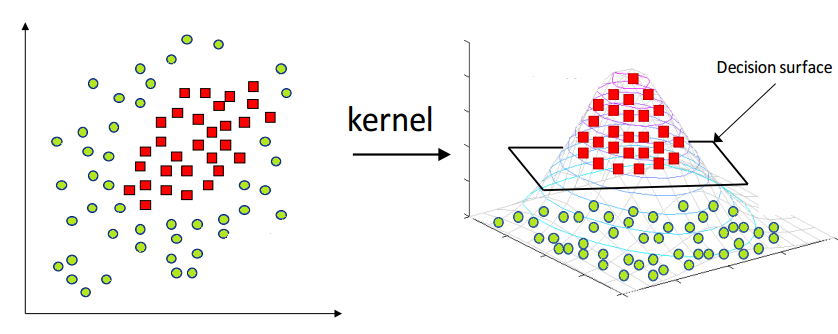Support-vector machines - SVM¶
Support-vector machines are supervised learning models with associated learning algorithms that analyze data.
Maximize the margin Find hyperplane satisfying
\[\vec{w}\cdot\vec{x}-b=0\]
Hard Margin¶
\[\begin{split}\vec{w}\cdot\vec{x}_i-b\geq 1 \text{ if } y_i=1 \\ \text{or} \\
\vec{w}\cdot\vec{x}_i-b\leq -1 \text{ if } y_i=-1\end{split}\]
rewritten as
\[y_i(\vec{w}\cdot\vec{x}_i-b)\geq 1\]
Soft-margin¶
Kernel Trick¶
In addition to performing linear classification, SVMs can efficiently perform a non-linear classification using what is called the kernel trick, implicitly mapping their inputs into high-dimensional feature spaces.
Could imagine using “kernel” to twist the plane, so that there is a linear cutting that could maximize the margin see also: SVM with polynomial kernel visualization
see also: SVM with polynomial kernel visualization
kernal¶
Linear¶
Gaussian (radial basis function) RBF¶
\[\begin{split}k(x,y)=e^{-\dfrac{||x-y||^2}{2\sigma^2}}\\
k(x_i, x_j)=e^{-\gamma||x_i-x_j||^2}\end{split}\]
it is the most used non-linear kernel, because the number of parameters is small hence faster speed with good result
Polynomial¶
\[\]